Parliament puts off major cabinet shake-up
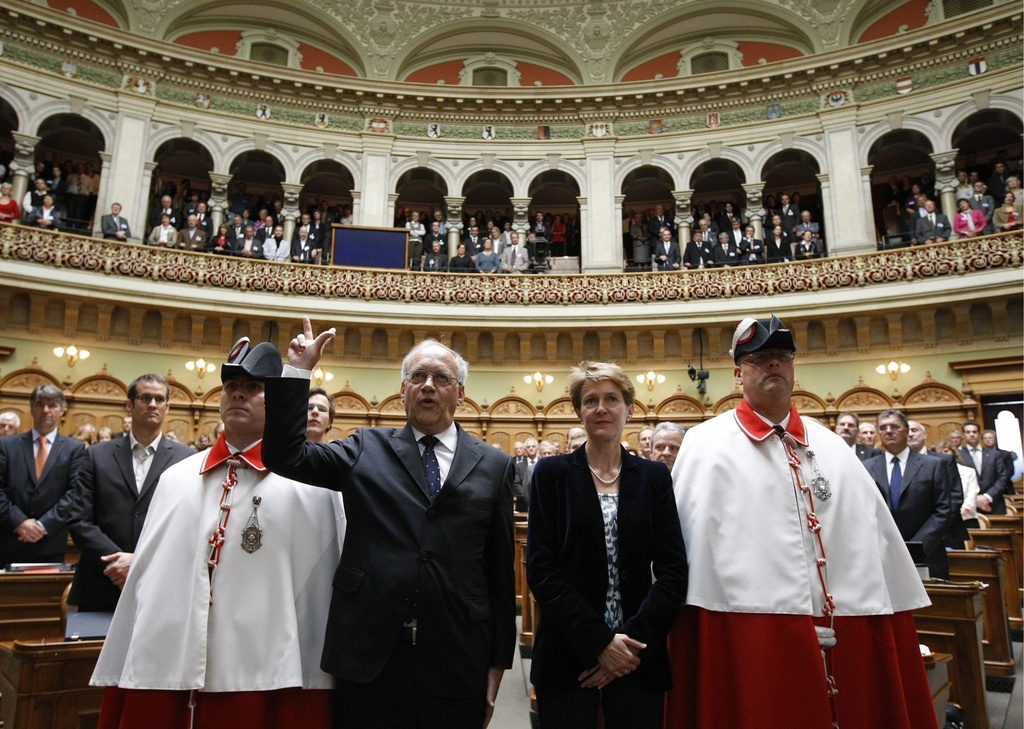
Elections to the cabinet have produced a female majority for the first time in Switzerland, but the party-political make-up of government remains unchanged.
Opinions differ as to how much these new appointments will boost the credibility of the multi-party government – weakened by in-fighting – 14 months before the four-year term ends.
It’s one of the peculiarities of Switzerland that cabinet elections attract a fair deal of public interest. The square in front of parliament was fenced off from the early hours of Wednesday when the first few onlookers had already taken up positions.
More than 300 journalists were accredited for the day, and radio and television as well as an increasing number of online media broadcast the event live.
It is hard to resist the buzz inside the parliament building. After all, cabinet elections in Switzerland are the closest the truly republican country comes to a coronation ceremony.
Political scientist Mark Balsiger highlights the solemn and dignified atmosphere of this election compared with some of the ballots of previous years which took place in a much more combative mood.
Balsiger is convinced that parliament chose two personalities – centre-left Social Democrat Simonetta Sommaruga and Johann Schneider-Ammann of the centre-right Radical Party – who will have a positive impact on the government with its shared responsibility.
“They both have the potential to boost the cohesion of the government,” says Balsiger.
He is optimistic that the atmosphere of distrust which became apparent in the old cabinet will change for the better particularly in dealing with the crisis over Libya as well as over the embattled UBS bank.
Taste of things to come
Georg Lutz, political scientist at Lausanne University, is less optimistic in his assessment.
“Switzerland has now a female majority – four out of seven seats. A historic moment, but other than that there are no major changes,” he notes.
He says the vote gave a taste of things to come in next year’s general election.
He expects the rightwing Swiss People’s Party to repeat its claim to an additional seat in cabinet ahead of the new four-year term.
“I strongly suspect we will continue to have discussions in the near future about the system of power-sharing and no agreement,” he says.
Tactics
The People’s Party acted primarily within its interest when it insisted on challenging the seats of the Social Democrats and the Radicals on Wednesday.
For about 50 years Switzerland’s main parties shared out the seven cabinet seats under a long-standing gentlemen’s agreement. That formula was upset in 2003 triggering some uncertainty over the make-up of the multi-party cabinet, currently including representatives of five parties.
However, the political fate of the small Conservative Democratic Party – mostly moderates and former People’s Party members – in cabinet is uncertain.
The tactical moves by the rightwing challengers left Lutz unimpressed – and the result of the elections was for him hardly surprising.
But Balsiger noted that the People’s Party appears to have learnt a lesson.
“The party presented a moderate candidate who is a valid alternative – also for a possible challenge next year.”
For the time being, parliament has decided to put off debate over an additional seat for the party until after the end of the term, according to Balsiger.
“But it was certainly not a bad day for the People’s Party,” he said.

More
Consensus politics and power-sharing
Values
A couple of hours after the brief swearing-in ceremony in parliament, an official reception and more than a hundred interviews the two newly-elected cabinet members gave their first official news conference.
Sommaruga stressed the need to re-build confidence in government and good cooperation with parliament. She said she aims to put forward credible, reliable and honest policies and to champion respect for minorities.
She also highlighted the female majority in cabinet.
Schneider-Ammann stressed similar values such as credibility, independence and collegiality to boost the country’s economic prosperity and cohesion.
It is not clear yet which ministries they will take over. A meeting to decide the portfolios in scheduled for next week.
Swiss cabinet ministers do not answer to their parties and there is no possibility to impeach them.
They are free to choose the moment of their resignation themselves and they enjoy considerable autonomy in the cabinet.
The cabinet members have to be confirmed in their posts every four years in the wake of parliamentary elections.
The Swiss government consists of a cabinet made up of seven members.
There is no prime minister. The position of president rotates among cabinet ministers every year.
The cabinet should reflect the political, cultural and linguistic diversity of the country.
For 50 years cabinet posts were shared out among the four main parties – the Radicals, the Christian Democrats, the Social Democrats and the Swiss People’s Party – under an informal agreement.
The system known as the Magic Formula was thrown out in 2003.
A fundamental tenet of the multiparty cabinet is the need to reach consensus and that decisions are taken collectively.
(with input by Armando Mombelli)

In compliance with the JTI standards
More: SWI swissinfo.ch certified by the Journalism Trust Initiative

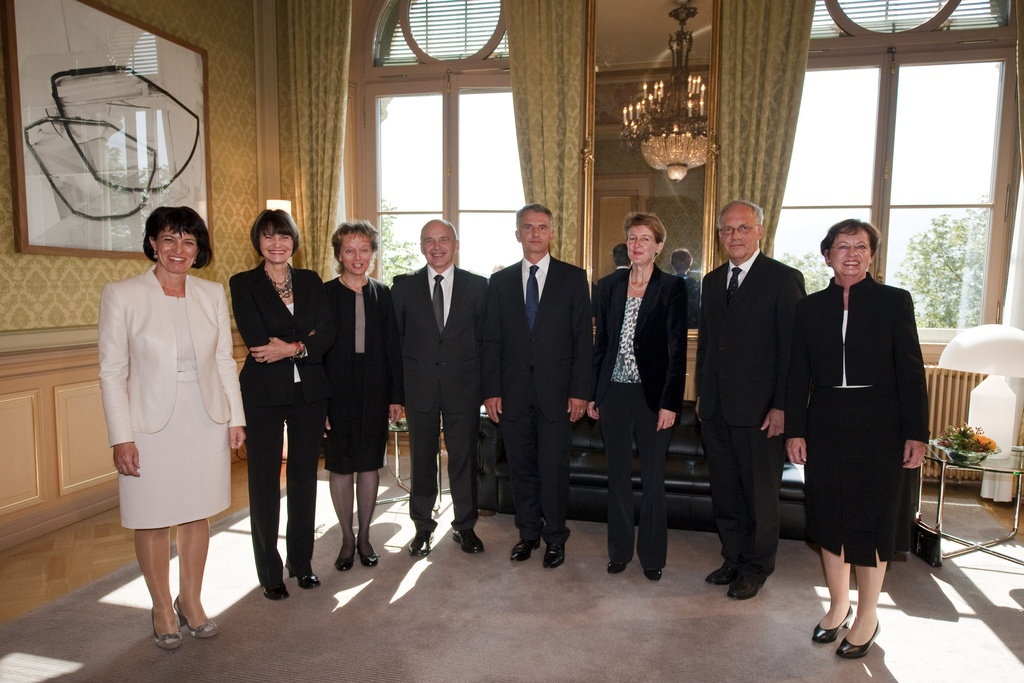
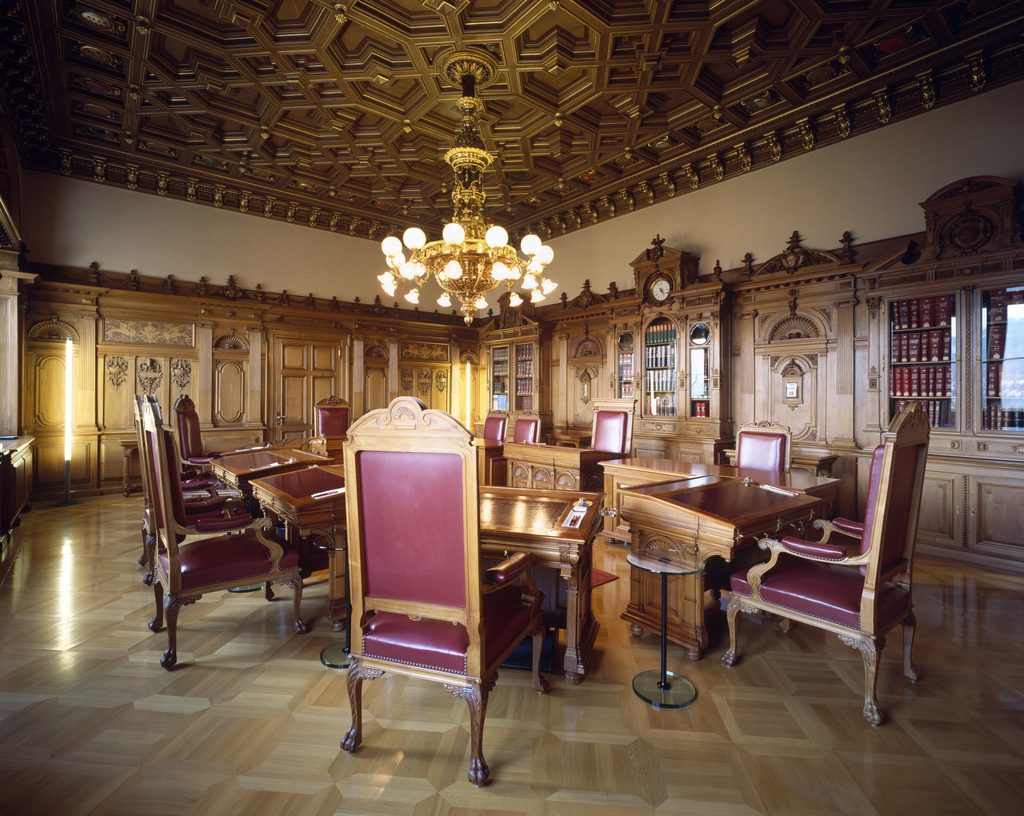
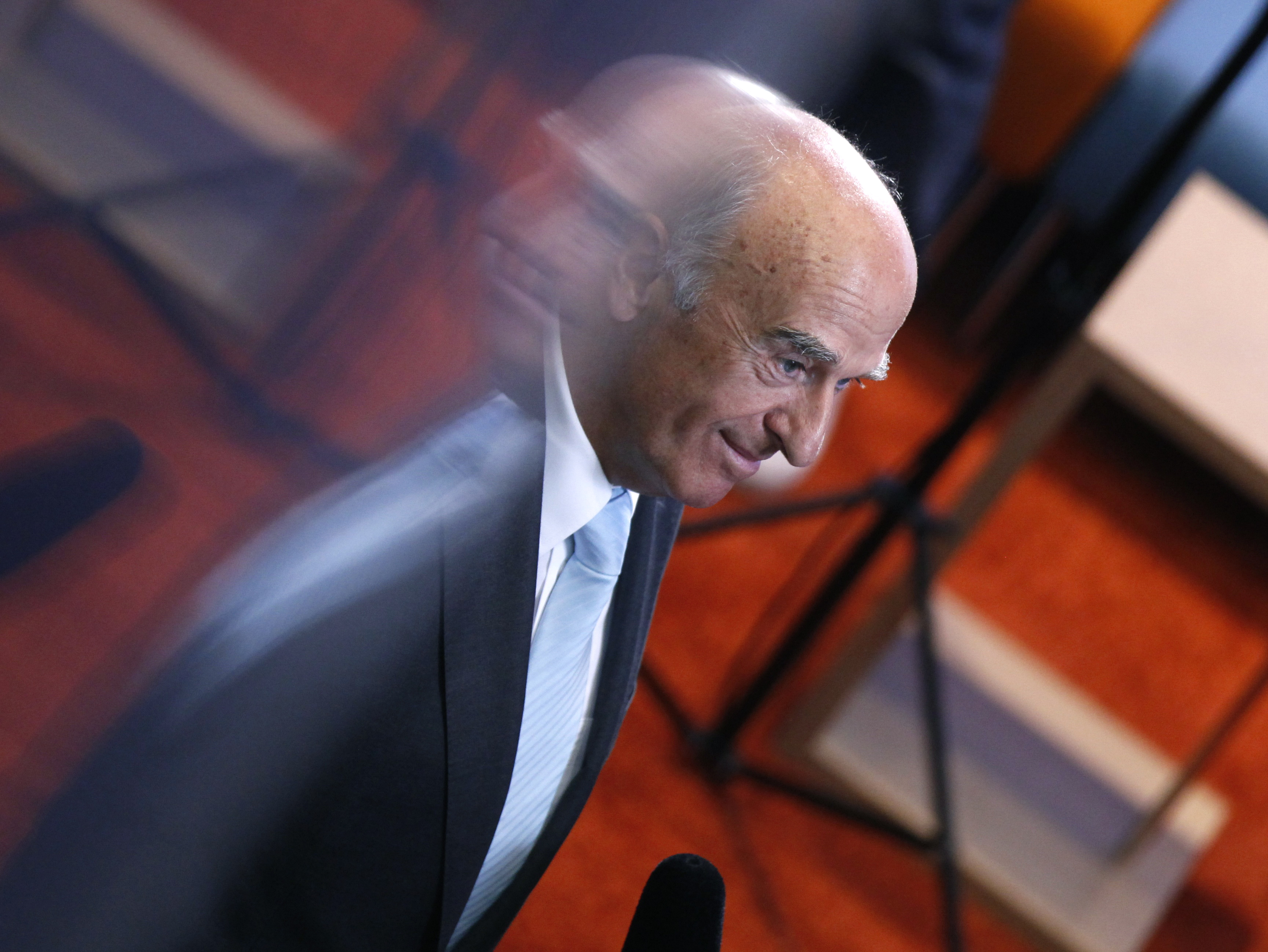
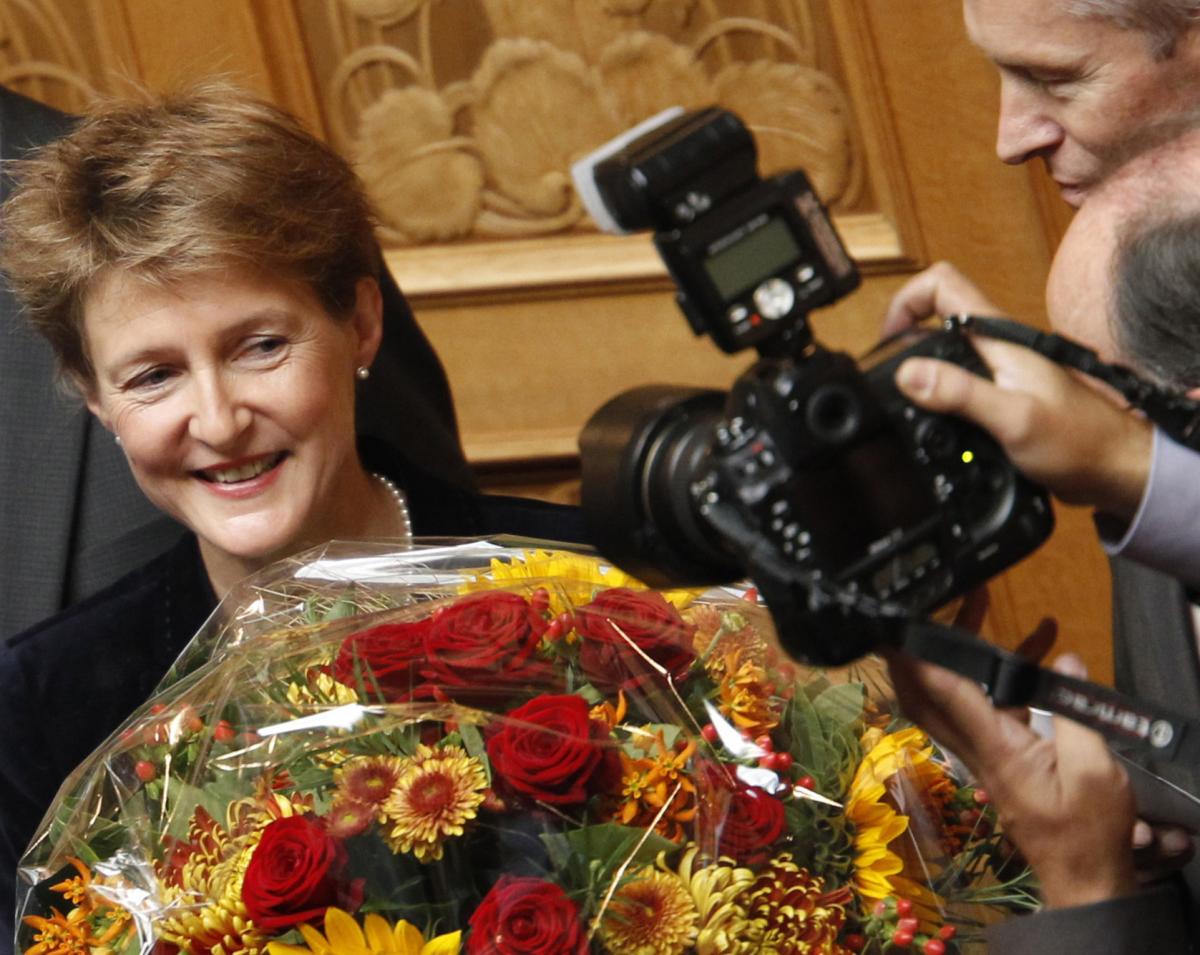

You can find an overview of ongoing debates with our journalists here. Please join us!
If you want to start a conversation about a topic raised in this article or want to report factual errors, email us at english@swissinfo.ch.